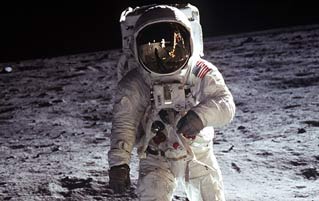5 Really Stupid Jokes Hidden In Really Smart Places

There are certain places where you'd expect to find jokes -- comedy clubs, Cracked.com, everything Breitbart publishes -- and certain places where you wouldn't: cancer wards, the Holocaust Museum, Cracked.com (if you're one of those jerks). But even the most serious efforts need to break the tension once in a while, so we wind up with ...
The Fart Joke Hidden In The Periodic Table

The element plutonium was discovered by Glenn Seaborg and his team in 1941, but he wasn't allowed to tell the world about his groundbreaking discovery at the time, because the USA was using it to develop the atomic bomb. The government decided that the fun secret ingredient for nuclear apocalypse should probably stay, well ... secret, so all references to sinister plutonium in the Manhattan Project were swapped out for benign copper. And that's why, to this day, enthusiastic but misguided science fans -- you can tell they love science by their trucks full of beakers and chemicals -- sometimes strip abandoned buildings for copper wire.

After the war ended, they were finally allowed to publish the existence of the 94th element, and Seaborg, its discoverer, was given the honor of naming it. Chemists at the time occasionally named elements after planets, the most recent being neptunium, so nobody blinked when Seaborg went ahead and called his element plutonium. But he did it primarily so that plutonium's abbreviation on the Periodic Table would be "Pu" -- it should've logically been "Pl," but Seaborg was oddly insistent about the abbreviation, because plutonium smells like butt, and also because Seaborg was a giant man-child and we love him for it.

Seaborg assumed that the committee would swiftly reject the proposal, and chide him for his immaturity, but the prank slipped right through, and was accepted as the official chemical symbol. And that's how Seaborg was granted a Nobel Prize for the world's most epic fart joke.
The Coded Jokes That Littered The Apollo 11 Mission

The Apollo 11 mission landed human beings on the moon for the first time. It was a serious, important, somber affair ... run largely by computer nerds, and hence, full of juvenile humor. In July 2016, someone dumped the entire source code for the Apollo 11 command module into the public domain, and space geeks got an eyeful of all the "TRASHY LITTLE SUBROUTINES" and '60s culture references the programmers left hidden between lines of the Apollo code. For example, the lunar module's landing sequence was coded "FLAGORGY."
If the radar antenna was out of place upon landing, the code included a command to "crank the silly thing around," and after someone had achieved the monumentally dangerous task of fixing it, another cheeky command instructed the astronauts to "see if he's lying" before proceeding.
"Roger. Commencing cranking of silly thing. Over."
It's actually heartwarming to know that, even in the pure and noble pursuit of scientific advancement for all mankind, there's always time to stop and just screw around for a bit.
The Brilliant Physicist Who Could Lick His Own Genitals

In November 1975, physics professors Jack H. Hetherington and F. D. C. Willard published a groundbreaking paper on particle physics that is still being referenced today. The paper made Hetherington a minor celebrity in the physics world, and folks were understandably eager to also track down co-author and assumed genius, F. D. C. Willard. That proved more difficult than they thought, not because Willard was some Tesla-style introverted prodigy, but because he was a cat. Not like "a hip cat." An actual housecat.

Soooo ... maybe check the crawlspace?
See, when Hetherington put together his research paper -- on his own, it turned out -- he used the royal "we" throughout the article, something we personally just can't stand. Physical Review Letters refused to publish the article as written, on the basis that there was only one credited author, and without proper grammar, what are we but cavemen, flailing ineffectually through the universe until we crap out and die? So Hetherington, rather than rewrite the paper, took the lazy way out and simply credited a second researcher -- his cat, Willard.

The Important Research Of Professor Total Asshole

In 1987, American physicist William Hoover had a paper rejected by the editors of two different publications. Convinced that his staggering work of heartbreaking genius could only have been dismissed for being "too innovative," Hoover resubmitted his work, changing only the title and co-crediting a fictional researcher named Prof. Stronzo Bestiale.

"Stronzo bestiale" is Italian for (approximately) "total asshole." Nobody even noticed the esteemed work of Professor Total Asshole until 2011, when a writer contacted Hoover to ask about the elusive Prof. Bestiale, to which Hoover replied that he had heard the phrase spoken by two Italian women during a flight, and decided that it sounded like a good name for a physicist. The joke went unnoticed for so long that Hoover and Bestiale actually had a bit of a career together, although it's rumored that only Hoover would work with him, since Bestiale could be a bit of a ... prick.

The Long, Long History Of Academic Articles And Puns

Obviously, the easiest place to slip a joke into a research paper is right there in the title. The folks over at Slate have put together an extensive collection of research papers whose authors clearly reached way harder for puns than they did for scientific greatness. For example, this article on the various things you apparently don't want to find coming out of your pee-hole, creatively titled: "From Urethra With Shove: Bladder Foreign Bodies. A Case Report And Review."
In 2008, researchers did a study on neck injuries experienced by head bangers, and titled the article "Stuck Between Rock And A Hard Bass." A 2011 psychological study into the positive consequences of pet ownership was titled "Friends With Benefits," which we sure hope was a joke. Another article published in the British Medical Journal noted that, while anecdotal evidence has suggested that the use of a parachute can mitigate death when falling from a great height, no scientific studies have ever been done to prove it. So they did that admittedly unnecessary study, and titled it "Parachute Use To Prevent Death And Major Trauma Related To Gravitational Challenge."

In 2014, someone noticed that a surprisingly high number of economics articles were written by co-authors who shared the same surname. They recruited four unrelated economists, all with the last name "Goodman," to do a study on the phenomenon , and titled it "A Few Goodmen: Surname-Sharing Economist Coauthors."
Finally, there was the 1974 article, published in the Journal Of Applied Behavior Analysis, by researcher Dennis Upper. It was titled "The Unsuccessful Self-Treatment Of A Case Of Writer's Block." At the risk of charges of plagiarism, we've decided to reprint the entire article here as it appears in the journal:
Mr. Yee would like to thank Prof. Stronzo Bestiale for his help in getting this article past the editors. Watch Mr. Yee take down the stupidest news headlines on Facebook, and get ready for his upcoming science and philosophy blog.
2016 is almost over. Yes the endless, rotten shit hurricane of a year which took away Bowie, Prince and Florence Henderson and gave us Trump, Harambe and the Zika virus is finally drawing to a close. So, to give this bitch a proper viking funeral, Jack O'Brien and the crew, which includes Dan O'Brien, Alex Schmidt, and comedian Caitlin Gill, are going to send out 2016 with Cracked's year in review in review. They'll rectify where every other year-in-review goes wrong by giving some much needed airtime to the positive stories from the 2016 and shedding light on the year's most important stories that got overlooked. Get your tickets here.
For more hidden jokes, check out The Filthiest Joke Ever Hidden In A Children's Movie and 20 Hilarious Dirty Jokes Hidden In Pop Culture.
Subscribe to our YouTube channel, and check out 7 Horrifying Things Snuck into Popular Children's Cartoons, and other videos you won't see on the site!
Follow us on Facebook, because we have a Japanese golfing joke to tell you.


